ACEFEIB 
The 7th Annual Conference of Economic Forum of Entrepreneurship & International Business

ECO-ENA: Economics & ECO-Engineering Associate, Inc.®, Canada
ISBN: 978-1-988081-06-9: Library & Archive Canada
Conference Organizer: Ghada Mohamed
Scientific Committee: Ghada Mohamed, PhD., Morrison H. Schachler, Ph.D., Daniel May, Ph.D., and Thomas Henschel, Ph.D.
research_forum@eco-ena.ca
Conference Venue: Hughes Hall, Cambridge University, Cambridge, United Kingdom
Conference Room: Gresham Court Study Room
June 29th, 2018
ISBN: 978-1-988081-06-9: The Fourth Annual Conference of Agricultural Economics and Agribusiness: Library & Archive Canada
The conference joins he 7th Annual Conference of Economic Forum of Entrepreneurship & International Business:
ISSN 1925-461X = The Annual Conference of Economic Forum of Entrepreneurship & International Business (Online): Library & Archive Canada
ISBN: 978-1-988081-05-2 = The 7th Annual Conference of Economic Forum of Entrepreneurship & International Business (Online): Library & Archive Canada
Conference Reporting
Dear Conference Delegates: Thanks for making the conference successful :)


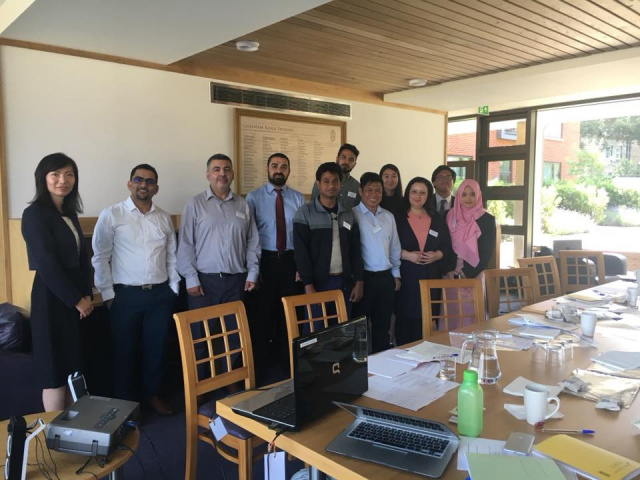


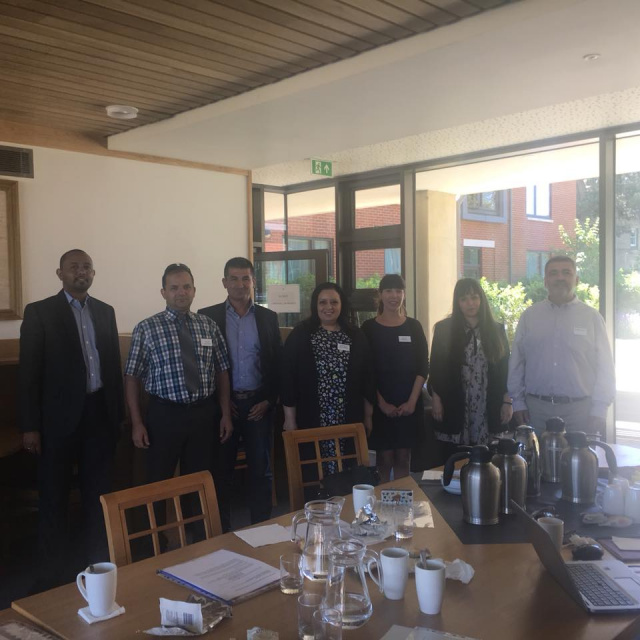
View all Pictures on the Facebook
The Conference Proceeding >>>
The Conference Presenters
Day 1: June 28th, 2018
Waheed Junaid
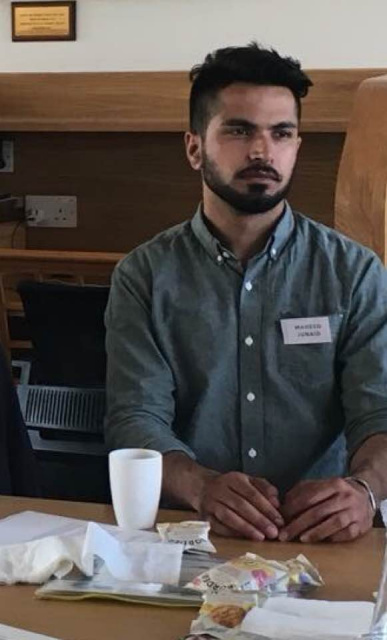
Title: PhD Candidate
Institution: School of Finance and Economics, Xian Jiaotong University, China and
Anser M. Khalid
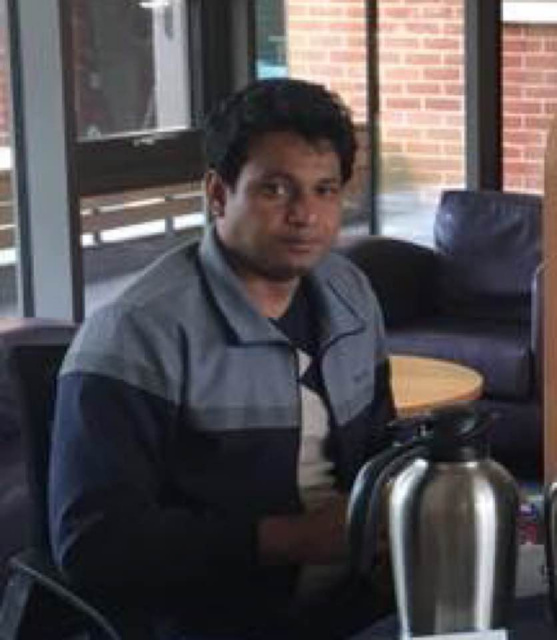
(Co-author & co-presenter)
Title: PhD Scholar
Institution: College of International Business, Shaanxi Normal University, China
Paper (1-1): "Residential Asset Prices and Consumption: A Case Study of Urban Household's of Pakistan"
Abstract: “Over the past few years, residential assets prices are increasing rapidly in the urban areas of major cities of Pakistan. There may be so many reasons for this increase in prices but our question is how these prices effect the household’s consumption decision. This study examines the impact of residential assets prices on household’s consumption through estimating the residential wealth effect. Using the panel data of 103 households for past five years (2012 to 2016) obtained from an independently
conducted household level survey in selected areas of Rawalpindi and Islamabad, different models were estimated through pooled and fixed effect regressions with cluster and Driscoll and Kraay (1998) standard errors. The results show significantly positive total residential and housing wealth effects. The paper concludes increase in residential assets prices raises the household consumption.”
Date of Presentation & Attendance: Day 1: June 28th, 2018
Status at the conference: Attended and presented their paper on June 28th, 2018
Tugba Dayioglu

Title: Associate Professor and Head of Management and Information System
Institution: Nisantasi University, Istanbul, Turkey
Paper (1-2): "Determinants of Sovereign Ratings in Emerging Countries with Panel PROBIT Analysis"
Abstract: “The aim of this paper is to study determinants of sovereign ratings of emerging countries. The ratings are analyzed with panel ordered probit model. The economic indicators are used and these variables of the countries are independent from the sovereign ratings. In this study we determined the effective factors on ratings and we check the effects of current account deficits, external debts, gross domestic product per capita, real exchange rates, inflations, unemployment and political qualities on sovereign ratings that are exported by three large rating agencies’(S&P, Moodys and Fitch). The credit agencies are taking attention some economical and political indicators of the countries on their credit limits. These sovereign credit scoring probability is estimated with panel oredered probit model in our study.”
Date of Presentation & Attendance: Day 1: June 28th, 2018
Status at the conference: She couldn't attend but she presented her paper over-Skype on June 28th, 2018
Ramchandra Bhusal

Title: PhD Candidate
Institution: Accounting Finance and Operations Management Department (Ethnic Minority Businesses Financing) Lord Ashcroft International business School, Anglia Ruskin University, Cambridge, United Kingdom and
Ying Wang
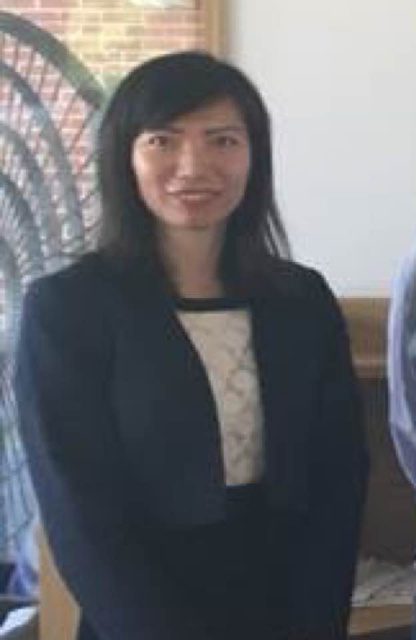
(Co-author & co-presenter)
Title: Senior Lecturer
Institution: Anglia Ruskin University, Cambridge, United Kingdom
Paper (1-3): "The Impact of Perceptual Attributes on Entrepreneurs' Preferences to External Financing"
Abstract: “The aim of this study is to examine the implications of type of ‘discouragement’, ‘discrimination’ and ‘risk-taking’ perception in external financing preferences of the business owners from five major ethnic groups (Indian, Pakistani, Bangladeshi, Black African and Afro-Caribbean) in England. A five-point Likert-Scale questionnaire was used to collect data. Questionnaire was distributed via e-mail, post and face-to-face survey was conducted to enhance representation and sample size. Multiple regression was performed to assess the impacts of perceptual attributes on entrepreneurs’ preferences to external financing. Findings suggest that the discouragement perception has a significant impact in shaping external financing preferences particularly for other than bank financing sources. Discrimination feeling to apply for bank financing has significant implication in preferences to alternative financing. Whilst risk-taking propensity has implication in preferences to bank financing. Furthermore, this study also established the order of the discouraging factors: financing cost, financing history and fear of prejudice to apply for bank financing among ethnic minority business owners. The practical and theoretical implications are discussed, and future research directions are presented.”
Date of Presentation & Attendance: Day 1: June 28th, 2018
Status at the conference: Both attended and presented their paper on June 28th, 2018.
Ismi Rajiani
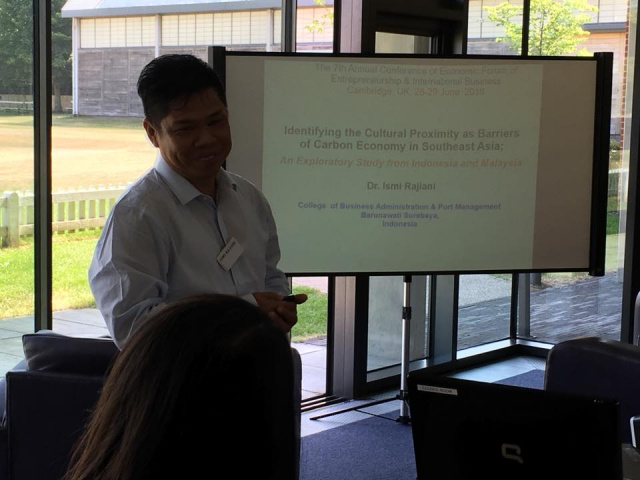
Title: Senior Lecturer
Institution: STIA Dan Management Kepelabuhan Barunawati, Surabaya, Indonesia
Paper (1-4): "Identifying the Cultural Proximity as Barriers of Carbon Economy in Southeast Asia : An Exploratory Study from Indonesia and Malaysia"
Abstract: “‘REDD+' (Reducing Emissions from Deforestation and forest Degradation) is a planned performance-based model in which developed country donors, corporations, non-governmental organizations, and individuals will pay developing countries for forest emissions decrease. This policy echoes "new carbon economy" - the arising business in carbon emissions accompanied with the sets of market-based policy instruments developed to decrease global greenhouse gas (GHG) emissions through the invention of markets for carbon. Southeast Asia hosts some early REDD+ type projects. However, there have been succinct differences between countries that have been successful in running REDD+. By referring to frameworks of national culture, this article is investigating the employability of REDD+ in the developing country of Malaysia which has been recognized amongst the highest globally in the growth of greenhouse gases (GHG), but the participation in the REDD+ project is so limited compared to Indonesia which is leading in REDD+ implementation. Using Hofstede's construct of national culture, social units in Malaysia and Indonesia are examined where REDD+ is proposed as a culturally dependent strategy. It is recommended that the successful implementation of REDD+ as new carbon economy demands compliance between the strategies that are adopted and the country's cultural characteristics. This study argues that the ability of the "new carbon economy" to provide real benefits for sustainable development may ultimately be obstructed by the nature of the society itself.”
Date of Presentation & Attendance: Day 1: June 28th, 2018
Status at the conference: He attended and presented his paper on June 28th, 2018.
Tamer Koburtay

Title: Assistant Professor
Institution: University of Petra, Amman, Jordan
Paper (1-5): "Workplace and Individual Spirituality Congruence: Insights from Jordan"
Abstract: “Person - Organization fit theory concerns how people flourish in a workplace that is congruence with their values and other traits. While much work has been done on how this fit is linked with behavioural and attitudinal outcomes, it evolves a framework with much left to be comprehended about what does this (fit) comprise. As seen in recent literature, workplace spirituality is a nascent area that needs further in-depth research not only on religiosity literature, but also on management and organizational studies. This paper seeks to highlight the theoretical relevance that workplace spirituality may add to the existing theory development of the P-O fit. In specific, it aims to test the emerged framework that encompasses how workplace and self spirituality match may enhance the perceived P-O fit, and how such a fit can enhance both employees’ ethical behaviour and spiritual leadership behaviour. The novelty of this paper is by generating, beyond the already vast literature on P-O fit, a new concept (i.e., P-O spirituality fit) to the literature.”
Date of Presentation & Attendance: Day 1: June 28th, 2018
Status at the conference: He attended and presented his paper on June 28th, 2018.
Rasha S. Hassan
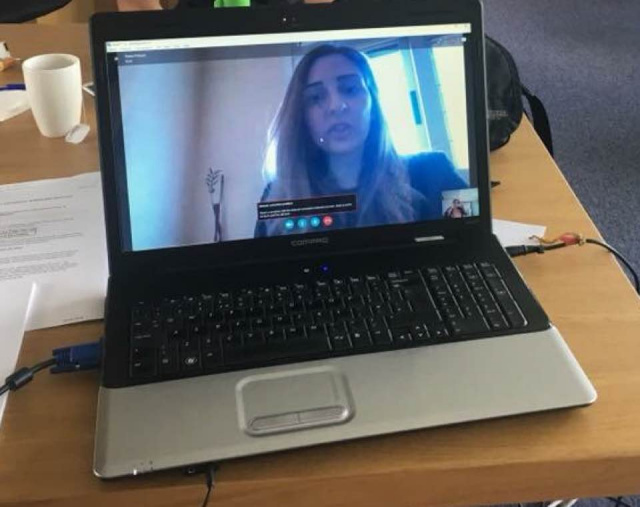
Title: Assistant Professor
Institution: The German University in Cairo, Egypt
Paper (1-6): "Entrepreneurship Barriers among University Students" - Over-Skype Presentation
Abstract: “The aim of this study is to examine the factors affecting students’ intention to start their business. The target population of this research were students from various private universities in Egypt. A questionnaire was distributed among students across different faculties using online and direct methods. Respondents’ perception towards barriers to entrepreneurship (fear of failure, lack of skills and experience, start-up logistics, lack of confidence, lack of general knowledge, lack of finance, lack of network, lack of personal/family support, lack of idea/awareness of the market, and time constrained) and their entrepreneurial inclination were assessed. Data were analyzed using SPSS to generate descriptive statistics, T-test, correlation, and regression analyses. This research provides interesting insights into the entrepreneurship barriers faced by university students from a developing country such as Egypt, where such research is lacking.”
Date of Presentation & Attendance: Day 1: June 28th, 2018 (Over-Skype)
Status at the conference: She presented her paper over-Skype on June 28th, 2018.
Rana Hassan
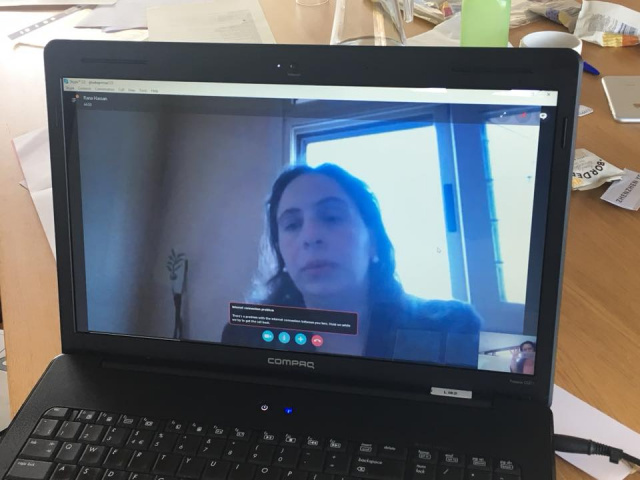
Title: Lecturer
Institution: Mass Communication Department, College of Arts and Sciences, Qatar University, Qatar
Paper (1-7): "Womenprenuers and Social Media: Impact of Social Media in Empowering Women Entrepreneurs in Qatar" - Over-Skype Presentation
Abstract: “This research investigates the effect of social media in encouraging women entrepreneurs in Qatar and explores the usage of new media technology in marketing and consumer relations. In addition, it reflects the role of both governments in encouraging and facilitating women entrepreneurship. Surveys were distributed to Qatari consumers to understand their social media buying behaviour and their opinion towards women empowerment in addition to intensive interviews with entrepreneurship experts in Qatar.”
Date of Presentation & Attendance: Day 1: June 28th, 2018 (Over-Skype)
Status at the conference: She presented her paper over-Skype on June 28th, 2018.
Faza Fakiha Taqwa
& Maulana Ihsan Al Ghifari (Co-author)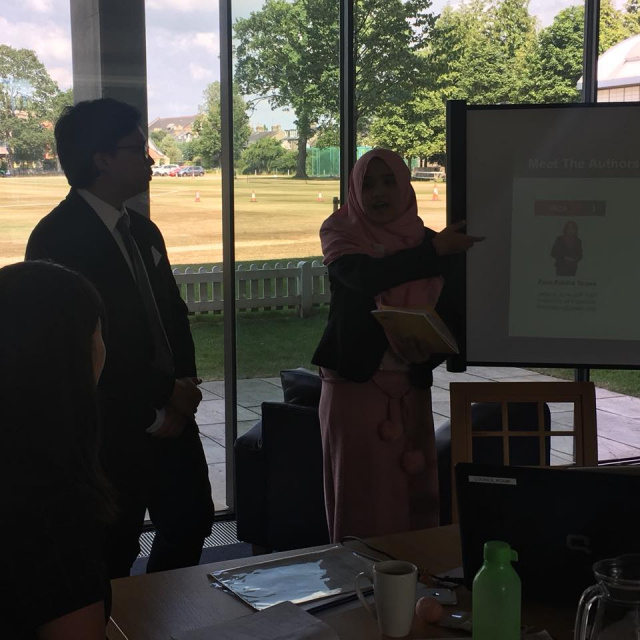
Title: PhD Candidate
Institution: University of Indonesia, Indonesia
Paper (1-8): "The Effectiveness of Endorsement on Instagram as Marketing Tool Theme: Marketing"
Abstract: “The aim of the paper is to understand how effective endorsement on Instagram is as a marketing tool of digital advertising and examine the extent of endorsement on Instagram as the platform of digital advertising which helps consumers in buying decision making.
The paper carries out empirical research to understand the effectiveness of endorsement on Instagram as marketing tool of digital advertising and an effort made to analyze the extent of endorsement on Instagram that helps consumers in buying decision making. Various statistical tests were applied to support the research hypothesis.”
Date of Presentation & Attendance: Day 1: June 28th, 2018
Status at the conference: Both attended and presented their paper on June 28th, 2018.
Co-author was invited to attend.
Ummi Rahma Shehu
Title: PhD Candidate
Institution: Department of Business Administration and Entrepreneurship, Faculty of Social and Management Sciences, Bayero University Kano, Nigeria
Paper (1-9): "The Relevance of Marketing in Effecting Women Entrepreneurship Development as a Solution to the Problem of Female Youth Illegal International Migration in Africa: The Case of Northern Nigeria"
Abstract: “The paper seeks to propose a conceptual framework on how entrepreneurship development can serve as a solution to the problem of female youth migration to other countries for economic reasons. The first part of this article gives a background of migration as a front burner issue facing Nigeria and the world and at large, emphasizing on the push and pull factors for international migration, and the advantages and disadvantages of international migration. The second part discusses the problem of the study The third part discusses the theoretical underpinnings between the variables highlighting on vocational education, literacy training, skill acquisition, startup business acceleration and innovation facilities, and the relevance of simple marketing techniques in convincing these youth to remain in their home country and earn a decent living, because in Nigeria, the dream for international migration is well embraced by the psychology and is imprinted on the belief and value system of an average vulnerable person. Then the next part proposes a conceptual framework and the final section proposes the methodological approach for an empirical study of a sample 350 vulnerable females aged between 18-30.”
Date of Presentation & Attendance: Day 1: June 28th, 2018
Status at the Conference: Couldn't make it to the conference >>> The research work was assigned to be internally evaluated.
Day 2: June 29th, 2018
Daniel May
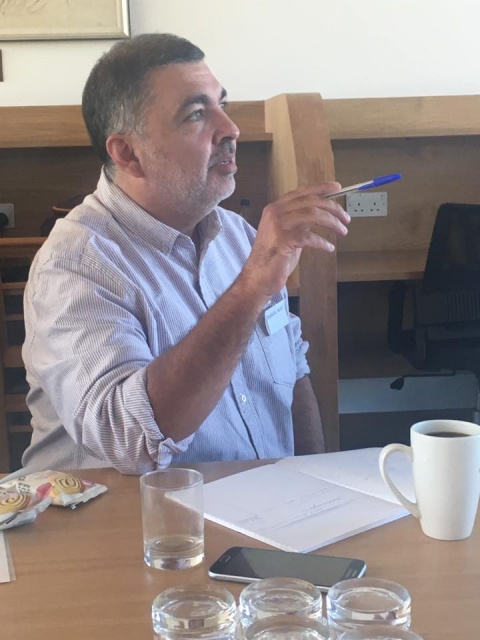
Title: Senior Lecturer
Institution: Harper Adams University, United Kingdom
Paper (2-1): "Understanding the Effects of the Young Payment on Young Farmers' Intention to Exit the Farm"
Abstract: “It is well known the fact the number of young farmers has decreased over the last decades in several countries across the world. A recent strategy adopted by the EU to address the resulting age imbalance is the young payment which corresponds to an additional payment on top of the average basic payment introduced in the last CAP reform. The objective of this article is to determine by means of a behavioural approach how this payment influenced the incentives of young farmers to stay in the farm. Using an extended version of the theory of planned behaviour and the structural modelling technique, we found that the payment affected young farmers’ willingness to stay through its influence on non-economics motivational goals. However, we also found that there are other factors that can be even more influential such as pessimism about farming, community and family integration, participation in decision making, and the opinion of neighbours, among others. Based on the results, we argue that similar policies could be adopted in other countries. Nonetheless, they would be more effective in addressing age imbalance if they are accompanied with complementary strategies aimed to deal with these social and psychological considerations. Here you can find all updates about the conference:”
Conference Chair - Presenter
Status at the Conference: Attended both days and presented his paper on June 29th, 2018. (Conference Committee Chair)
Ourania Tremma
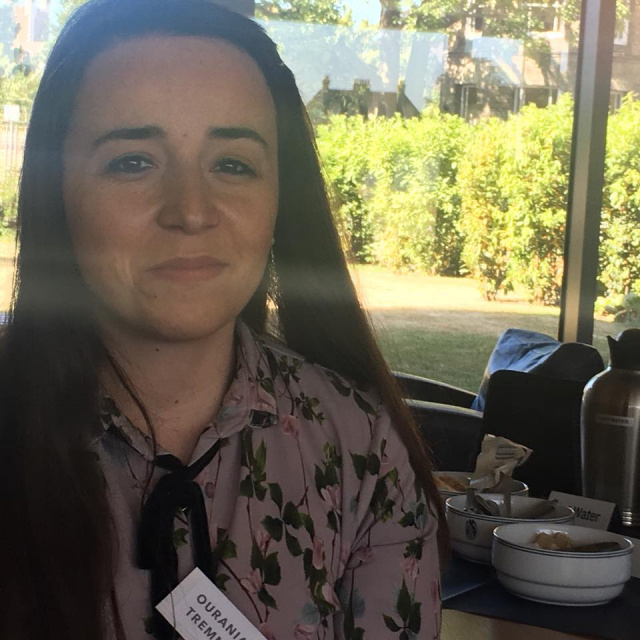
Title: Lecturer
Institution: Harper Adams University, United Kingdom
Invited Speaker
Paper (2-2): "Price Dependence in Major EU Pork Markets"
Co-authored with Anastasios Semos; the Sristole University of Thessaloniki, Greece
Abstract: “The objective of this study is to identify the structure of price dependence within the four dominant EU pork markets; Germany, France, Spain and Denmark. This is pursued using monthly wholesale prices over the period 1991:01 to 2016:01. Pair – wise analysis is followed and the non-parametric granger causality test proposed by Diks and Panchenko (2006) is applied along with the nonlinear autoregressive distributed lag model (NARDL), allowing for asymmetries both in the long-run and the short run. Results suggest that market integration exists between the examined pairs and the Law of One price holds for the majority of the EU pork markets. In the short run though, results show that the speed of adjustment is asymmetric in almost all cases, indicating that the possession of market power and the fact that Denmark has not adopted the Euro may cause the speed of price transmission to be low. Therefore, the present study underlines the need to adopt more targeted policies in order to isolate any form of market inefficiency-even in the short- run.”
Date of Presentation & Attendance: Day 2: June 29th, 2018.
Status at the Conference: Attended and presented her paper on June 29th, 2018. (Invited)
Najeh Mzoughi
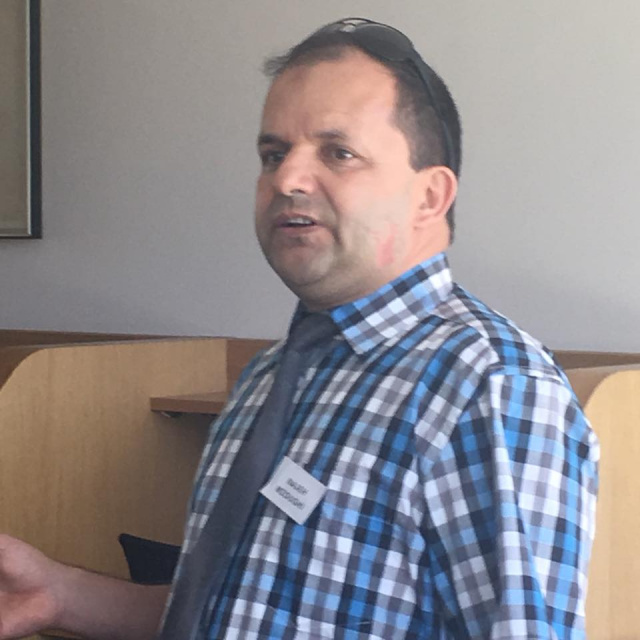
Title: Assistant Professor
Institution: College of Business Administration, Jazan University, Kingdom of Saudi Arabia
Paper (23): "Competitiveness of Selected Agro-Food Value Chains in Some Emerging Countries"
Abstract: “In this research we involve the selection of agro-food value chains some emerging countries that are analyzed, and more specifically the sub sector or product focus. The proposed methodology distinguishes between export and domestic value chains since the basis and criteria for chain selection differ. Two objectives are suggested: The Export growth potential; this would suggest the selection of key value chains contributing to EC export growth strategy. The Poverty alleviation/rural development potential, this would suggest the selection of value chains with potential to reduce poverty and generate (rural) employment.
The idea is to select some export and domestic oriented chains and ask many questions included in two attached surveys. A multi- criteria selection methodology is developed and includes parameters such as: sector’s contribution to GDP, export propensity and earnings, attractiveness for private investment, policy relevance, job creation, poverty alleviation, local value added, sector’s readiness for reform and change, support for policy reform, etc. Some relevant stakeholders (industry representatives, trade representatives, universities, government, etc.) will provide after answers to the questionnaire, so the value chains will be subject for further analysis.
Methodically, a score will have emerged from collected results of the questionnaire for export and domestic sectors. For each sector a mean average rank is calculated from two sections; potential and constraints, which are calculated such that for each sector the mean average of potential – mean average of constraints = final sector score.
Answers should consider the likelihood of global market growth, the scope for increased market share, and the source of growth (volume and/or value). Primary collected data provide a pertinent background information related to the business environment, which is useful in interpreting value chain results where firm/sector performance is linked to value-adding activities and public sector policies and responsibilities.”
Date of Presentation & Attendance: Day 2: June 29th, 2018
Status at the Conference: Attended and presented his paper on June 28th, 2018.
Eiman Eissa

Title: Assistant Professor
Institution: Mass Communication Department, College of Arts and Sciences, Qatar University, Qatar
Paper: "Exploring Differences in Online Consumer Behaviour: Qatar as a Case Study"
Abstract: “This research aims to explore the online shopping platform in Qatar in relation to gender differences. It investigates the types of advertisements that appeal to males and females; moreover, it examines whether the advertisements affect their buying decisions and their perceived value of the commodities.
This research compares the types of products that male and female consumers buy online and study the reasons they do so. The research also examines their satisfaction rates with the purchases that they made. The research is conducted using an online questionnaire and the results are comparatively analyzed to reveal if there is a correlation between gender and consumer behaviour.”
Date of Presentation & Attendance: Day 2: June 29th, 2018 (Over-Skype)
Status at the Conference: Presented her paper Over-Skype on June 29th, 2018.
Saimir Osmani
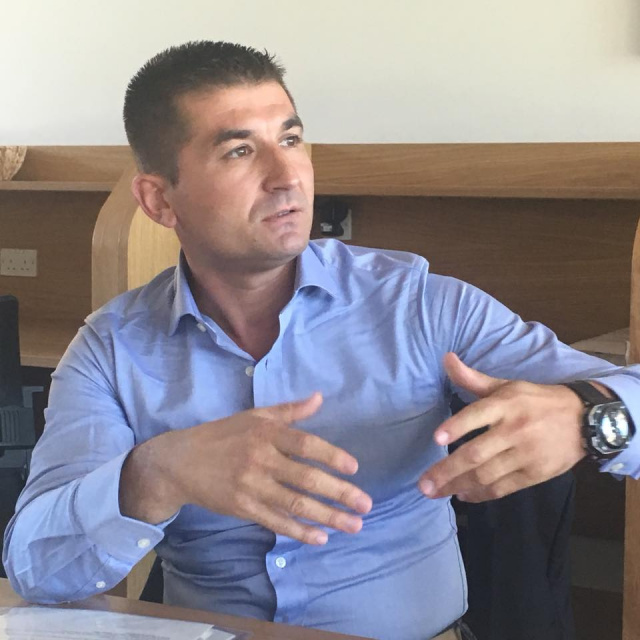
Title: PhD Candidate
Institution: Institute of European Studies, University of Tirana, Albania
Paper (2-5): "Sustainable Development Factor in the Albanian Security Strategy"
Abstract: “The paper reviews the sustainable development stated in the Security Strategy of Albania as an important factor of Albania’s future and the country’s integration in the European Union and its aspirates of Euro-Atlantic values. The structure of the paper discusses all those aspects in details."
Date of Presentation & Attendance: Day 2: June 29th, 2018
Status at the Conference: Attended and presented his paper on June 29th, 2018.
Zhenzhen Ye
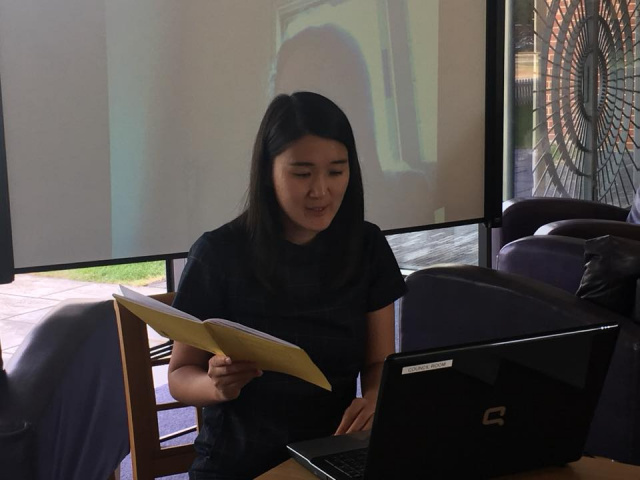
Title: Senior Economist and Data Analyst, Policy and Research
Institution: Policy and Research Information and Communications Technology Council, Ottawa, ON, Canada
Paper (2-6): "What Role Does Investment Climate Play in Attracting High-Quality Foreign Direct Investment (FDI): Evidence from Canada"
Abstract: “From 2010 to 2016, Canada's global inward FDI share had decreased by 1%, totalling 3.6% in 2016. At the same time, a closer analysis of the FDI that Canada did receive showed a high favourability for traditional industries such as oil and gas, mining, manufacturing and others. While many of these industries saw minimal to negative growth in recent years, they still accounted for nearly half of all FDI [UNCTAD, 2018]. What does this mean for Canada as a potential market for high-quality foreign capital, and what message does it send to would-be investors? This study investigates Canada's capacity for competitiveness when it comes to attracting FDI, and sets out key parameters to boost FDI in the short and medium term. Using a pooled cross-section time series model, and incorporating a number of variables including inward FDI stock among G7 countries, investment climate, market size and others, the study analyzes the link between a strong investment climate and inward FDI stock. With the understanding that the state of a local investment "climate" is a strong factor influencing investors' decisions on where and why to invest, this study will provide an evidence-based foundational framework for measuring and enhancing Canada's capacity to attract quality FDI in high growth sectors.”
Date of Presentation & Attendance: Day 2: June 29th, 2018
Status at the Conference: Attended and presented her paper on June 28th, 2018.
Najla KAMERGI
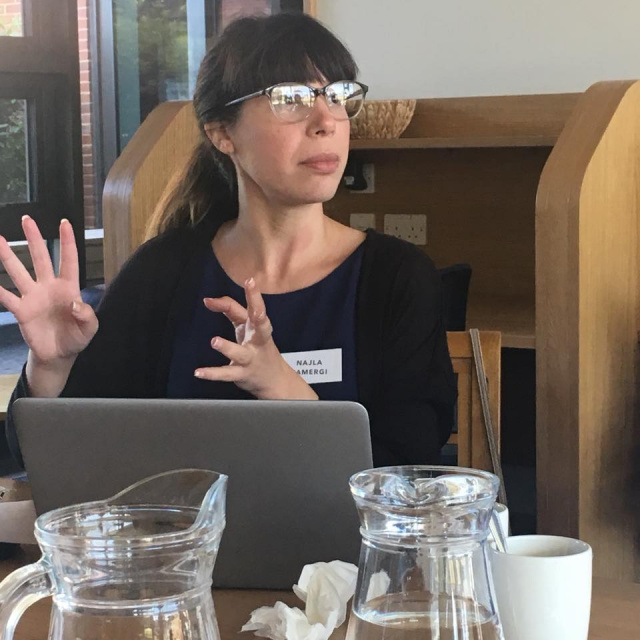
Title: PhD Candidate
Institution: LEAD (Development Economics Laboratory), University of Toulon, France
Paper (2-7): "The Impact of the Environmental Policies' Stringency on the Mediterranean Agricultural Trade - New Evidence from a Gravity Model"
Abstract: “This research addresses the evolution of agricultural trade SEMCs in a context of multilateralism while analyzing the impact of environmental policies and their heterogeneity on agricultural trade flows between SEMCs and their main trade partners.“
Date of Presentation & Attendance: Day 2: June 29th, 2018
Status at the Conference: Attended and presented her paper on June 29th, 2018.
Tarig Mohamed Ali Malik Taha

Title: PhD Candidate
Institution: Edinburgh Business School Heriot Watt University, Khartoum, Sudan
Paper (2-8): "Analysis of the Competitive Dynamics within the Oil and the Gas Industry using Porter's Five Forces Model"
Abstract: “The Structure-Conduct-Performance(S-C-P) Model suggests that the structure of an industry has more bearing on the performance of the firms operating in an industry. In view of the S-C-P model this paper investigates the rivalry forces that function within the oil and gas industry using Porter’s Five Forces Model, the paper also attempts to assess the potential impact of these competitive dynamics on the profitability of the key players operating within this industry based on annual financial data for the period (2011-2017), The results show that the oil and gas industry has high barriers to entry, and there are both intensive rivalry and evidence for collaboration among existing players. Furthermore, analysis have shown that in periods of economic boom/crises oil majors tend to create negative/positive economic rents.”
Date of Presentation & Attendance: Day 2: June 29th, 2018
Status at the Conference: Attended and presented his paper on June 29th, 2018.
Dimitrios Paparas
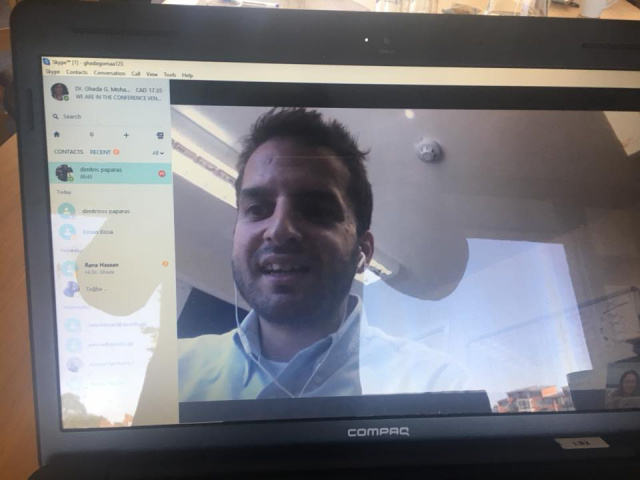
Title: Senior Lecturer
Institution: Harper Adams University, United Kingdom
Paper (2-3): "Is There a Significant Change in the Price Transmission Between Producer and Retail Prices within the British Pork Industry?"
Co-authored with: Thomas Pickering, Ourania Tremma and Luis De Aguilar
Abstract: "The purpose of this study is to examine price transmission between the producer and retail in the UK pork industry. It aims to find the direction of causality in the long and short-run, and whether there is a long-run relationship between producer and retail prices. This study used monthly time series data for producer and retail prices ranging from 1988-2016. Econometric tests were used such as the Augmented Dickey-Fuller (1979) and Phillips-Perron (1988) Unit Root tests; Bai-Perron (1998) Unit Root test allowing for multiple structural breaks; Johansen (1991) and Engle-Granger (1987) Co-integration tests; Granger (1988) Causality, and the Error Correction Model showing the speed of recovery in the long-run relationship after a shock.
The results of the Unit Root tests found both producer and retail prices to be integrated of order one I(1). Three structural breaks were found occurring in the years of 1996, 2002 and 2012. The Co-integration tests found that there is one long-run relationship between producer and retail prices. The Error Correction Model showed the return to a new equilibrium after a shock was 9% per month totalling over 11 months for a full recovery from a shock. The Granger (1988) Causality test indicated that producer prices do Granger cause retail prices in the short-run. In this study the latest econometric techniques were used including structural breaks which some previous studies overlooked. This study into the producer and retail prices in the UK pork industry is the latest study of this kind since the Brexit decision."
Date of Presentation & Attendance: Day 2: June 29th, 2018. (Over-Skype Presentation)
Status at the Conference: Presented his paper Over-Skype on June 29th, 2018.
Ghada G. Mohamed
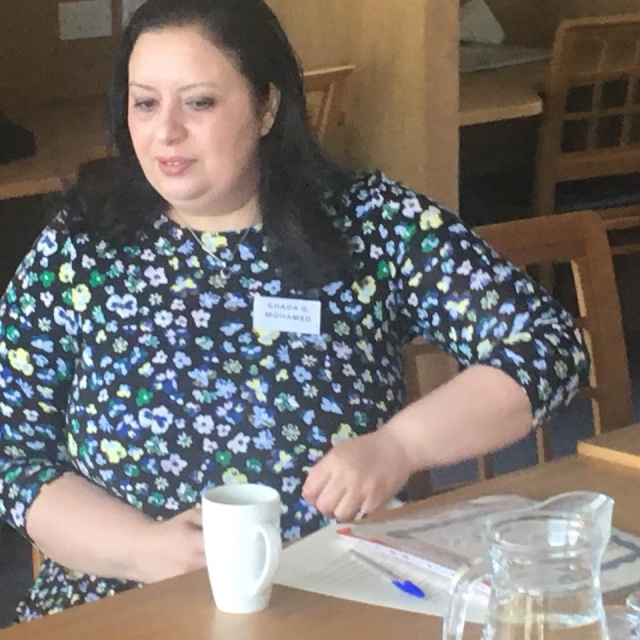
Title: Conference Chair
Institution: ECO-ENA: Economics & ECO-Engineering Associate, Inc., Canada
Closing
The Conference Program
First Day Symposium
June 28th, 2018
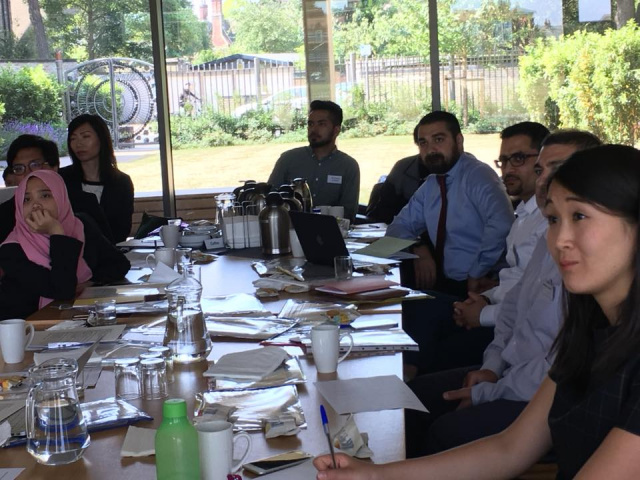
Venue: Hughes Hall, Cambridge University, Cambridge, United Kingdom
Conference Room: Gresham Court Study Room
Entrepreneurship & International Business
(The 7th Annual Conference of Economic Forum of Entrepreneurship & International Business)
8:30 am - 9:00 am Registration & Refreshments
Program: From 9:00 a.m to 5:20 p.m
Duration/ Presentation: 40 Minutes
Session 1
From 9:00 am to 11:40 pm
Financial Economics & Sustainability - Macro/ Micro perspectives: Case Studies & Econometric Analysis
Paper (1-1): From 9:00 am to 9:40 am
Waheed Junaid & Answer M. Khalid "Residential Asset Prices and Consumption: A case Study of Urban Household's of Pakistan"
Paper (1-2): From 9:40 am - 10: 20 am
Tugba Dayioglu: "Determinants of Sovereign Ratings in Emerging Countries with Panel PROBIT Analysis"
Paper (1-3): From 10:20 am to 11:00 am
Ramchandra Bhusal & Ying Wang "The Impact of Perceptual Attributes on Entrepreneurs' Preferences to External Financing"
Paper (1-4): From 11:00 am to 11:40 am
Ismi Rajiani: "Identifying the Cultural Proximity as Barriers of Carbon Economy in Southeast Asia: An Exploratory Study from Indonesia and Malaysia"
From 11:40 am to 12:20 pm:
Evaluating the first 4- papers' Econometric Analysis and Open Discussions
Paper (1-5): From 12:20 pm to 1:00 pm
Tamer Koburtary: "Workplace and Individual Spirituality Congruence: Insights from Jordon"
1:00 - 2:00 pm
(Lunch Break - All delegates are invited)
Session 2
From 2:00 pm to 5:00 pm
Entrepreneurship, Workplace Adoption, Social Barriers, Human Mobility and Social Marketing - Case Studies
(Coffe, Tea and Refreshments will be presented to all delegates at 3:30 during the discussions)
(Paper 1-6): From 2:00 pm to 2:40 pm
Rasha S. Hassan: "Entrepreneurship Barriers among University Students"
Paper (1-7): From 2:40 pm - 3: 20 pm
Rana Hassan: "Womenpreneurs and Social Media: Impact of Social Media in Empowering Women"
Paper (1-8): From 3:20 pm - 4: 00 pm
Faza Fakiha Taqwa: "The Effectiveness of Endorsement on Instagram as Marketing Tool Theme"
Paper (1-9): From 4:00 pm - 4: 40 pm
Ummi Rahma Shehu: "The Relevance of Marketing in Effecting Women Entrepreneurship Development as a Solution"
From 4: 40 am to 5:00 pm
Discussion and Closing by Dr. Ghada Mohamed
Second Day Symposium
June 29th, 2018

Venue: Hughes Hall, Cambridge University, Cambridge, United Kingdom
Conference Room: Gresham Court Study Room
Agricultural Economics, Agribusiness and Sustainable Development
(The 4th Annual Conference of Agricultural Economics & Agribusiness)
8:30 am - 9:00 am Registration & Refreshments
Program: From 9:00 a.m to 5:20 p.m
Duration/ Presentation: 40 Minutes
Session 1
From 9:00 am to 1:00 pm
Agribusiness, Retail Prices, Payment, Consumers' Behaviour and Market Analysis: Case Studies
Paper (2-1): From 9:00 am to 9:40 am
Daniel May: "Understanding the Effects of the Young Payment on Young Farmers' Intention to Exit the Farm"
Paper (2-2): From 9:40 am - 10: 20 am
Ourania Tremma: "Price Dependance in Major EU Pork Markets"
Paper (2-3): From 10:20 am to 11:00 am
Najeh Mzoughi: "Competitiveness of Selected Agro-Food Value Chains in Some Emerging Countries"
Paper (2-4): From 11:00 am to 11:40 am
Eiman Eissa: "Exploring Differences in On-line Consumer Behaviour: Qatar as a Case Study" - Over-Skype Presentation
From 11:00 am to 11:40 am
Panel Discussion: From 11:40 am to 12:20 pm
The first 4-papers evaluation --- Open Discussion
(Paper 2-5): From 12:20 pm to 1:00 pm
Saimir Osmani: "Sustainable Development Factor in the Albanian Security Strategy"
1:00 - 2:00 pm
(Lunch Break - All delegates are invited)
Session 2
From 2:00 pm to 5:00 pm
Environmental Policy and Foreign Capital Flows and Competitiveness
Micro/ Macro analysis: Case Studies
(Coffee, Tea and Refreshments will be presented to all delegates at 3:30 during the discussions)
(Paper 2-6): From 2:00 pm - 2: 40 pm
Shenzhen Ye: "What Role Does Investment Climate Play in Attracting High-Quality Foreign Direct Investment (FDI): Evidence from Canada"
Paper (2-7): From 2:40 pm - 3: 20 pm
Najla Kamergi: "The Impact of the Environmental Policies' Stringency on the Mediterranean Agricultural Trade - New Evidence from a Gravity Model"
Paper (2-8): From 3:20 pm - 4: 00 pm
Tarig Mohamed Ali Malik Taha: "Analysis of the Competitive Dynamics within the Oil and the Gas Industry using Porter's Five Factor Model"
Paper (2-9): From 4:00 pm - 4: 40 pm
Dimitrios Paparas: "Is there a Significant Change in the Price Transmission between Producer and Retail Prices within the British Pork Industry" - Over-Skype Presentation
Discussion and closing with Dr. Daniel May:
From 4: 40 am to 5:00 pm
The 8th Annual Conference of Economic Forum of Entrepreneurship & International Business will be held in the Monson conference room, LMH, Oxford University, Oxford, United Kingdom on February 1st & 2nd, 2020. New
Conference Organizer: Ghada Mohamed
Scientific Committee: Ghada Mohamed, PhD., Morrison H. Schachler, Ph.D., Daniel May, Ph.D., and Thomas Henschel, Ph.D.
research_forum@eco-ena.ca
|
Venue: Hughes Hall, Wollaston Rd, Cambridge CB1 2EW, Cambridge University, United Kingdom
|